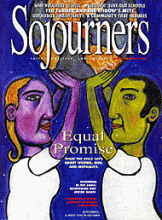It is simultaneously 1963 and the present day, and Rev. Fred L. Shuttlesworth, leader of the civil rights movement in Birmingham, is standing amidst the wreckage of his bombed-out pastorate, Bethel Baptist Church. With astonishing grace and dignity, Shuttlesworth tries to make sense of the devastationone of the most memorable, absorbing, and poignant moments from Spike Lees outstanding new documentary, 4 Little Girls.
Scheduled for a premiere in February on HBO, approximately 10,000 people viewed 4 Little Girls at the Alabama Jazz Hall of Fame in the Birmingham civil rights district during a special two-week engagement in September. The film premiered there the day after the 34th anniversary of the bombing of the 16th Street Baptist Church, where the four little girls of the titleDenise McNair, Carole Robertson, Cynthia Wesley, and Ada Mae Collinswere murdered by Ku Klux Klansmen trying to send a message to civil rights activists.
The bombing had the opposite effect. Prior to the bombing, as former Atlanta mayor Andrew Young relates in the film, civil rights leaders in Birmingham struggled to find 50 adults who would go to jail with Martin Luther King Jr. More significantly, as Walter Cronkite indicates, this bombing forced white people across the nation to countenance the intractable and truculent nature of the hatred and segregation in Birmingham. Lees insight that the deaths of these girls changed everything for these families and for the movement makes the film work on two levels: as a story of how families overcome horrific and profound loss and as living, oral history.
Read the Full Article
